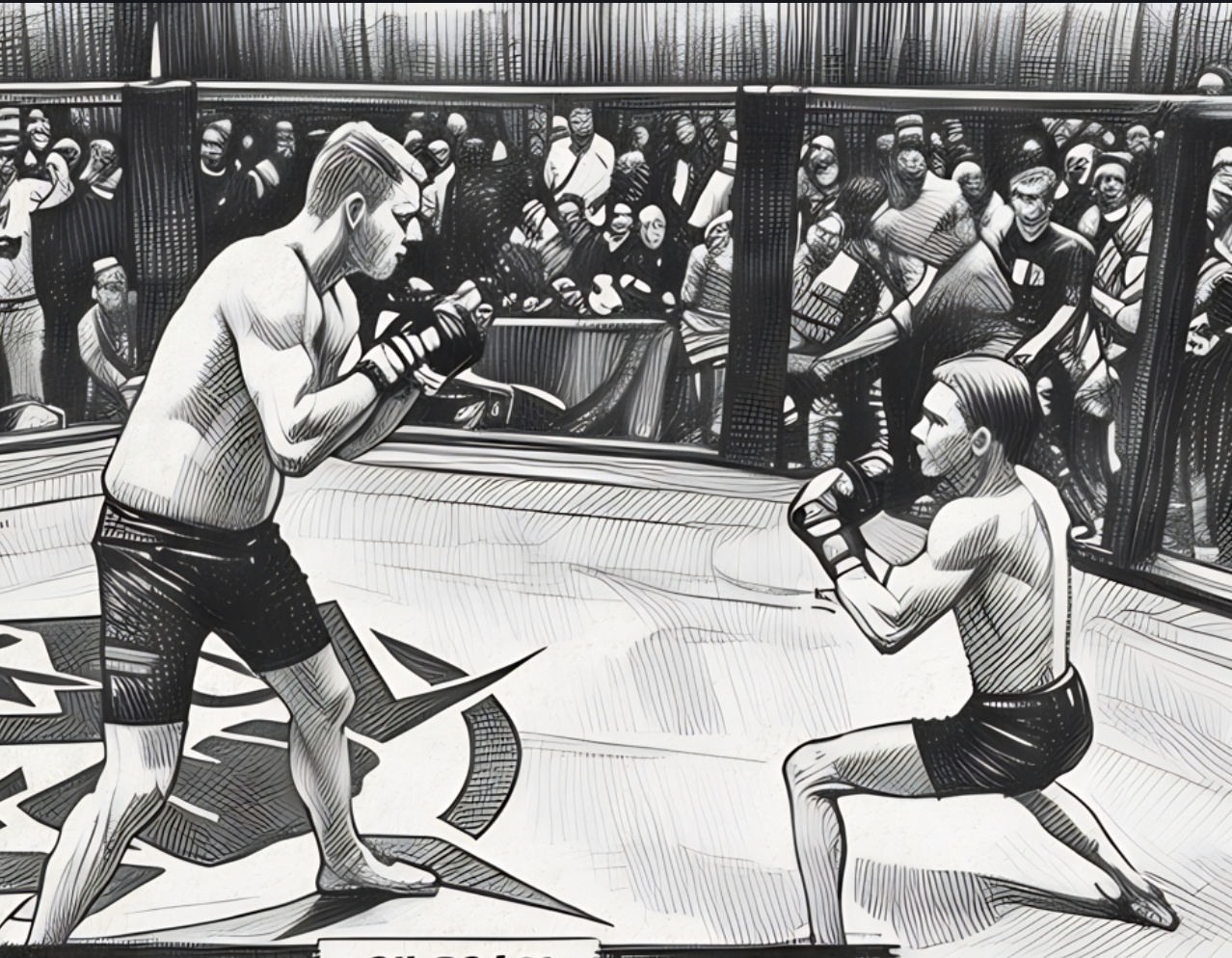
I’ve won more than I’ve lost, but losing is a hard pill to swallow, especially with the type of sacrifices that go into a fight camp. You miss birthdays, nights out, traveling with friends, and visiting family.
If you win, it all seems worth it. But if you lose, it all seems so pointless; the missed memories, the life lived and unlived in the gym.
Training to win is hard, but ultimately, receiving a win is easy. Your hand gets raised, the crowd cheers, you set an example, and you make everybody proud. Your choices, which can be selfish at the best of times, are validated, and the toll on your physical and mental health is legitimized.
But, should you lose, defeat clings to you as condolences strewn on your path back to the changing room. Regret soon follows as you simultaneously think of the untapped potential in the fight and missed opportunities in your personal life.
‘A massive wake-up call’
I fought my hardest, but I came up short. I’m proud of how I conducted myself. I was in the best mental state I’ve ever been in before a fight. I kept myself calm, prioritized my self-care, zoned out, and found peace amidst the chaos through meditation and affirmation. I prepared on the day like a champion, I fought with all my heart, but I didn’t get the belt.
Losing is a bitter pill to swallow. But not getting what you want offers a chance to get clear on what you do actually want, what you’re willing to do to get it, and of course, how your character holds up in defeat.
Fighting at 112-117 lbs means a small pool of competitors, so I went straight to the semi-final at the national tournament I was attending. I’d done the best I could with what I had. After three years out of the ring, I had failed to consider how my mind would react when faced with an actual fight.
It’s not about dwelling, but, just like grief, it’s essential to recognize not only what went wrong but also to deal with the emotions that come with losing.
When you’re consistently competing, you normalize getting into an enclosed space and going to war with somebody. But when you take time off, your brain temporarily steps out of that mode. That’s what happened to me.
In the very first round, my brain freaked out, and it took the whole two minutes to get my head around what was even happening. Looking back at the footage, I did better than I felt I did, but it was a massive wake-up call, and I fought out of survival rather than strategy.
In the second round, I did a lot better and had some space to think about what I was doing, and got some good shots in. I think I won this round, actually, on subsequent review. But my opponent was a better boxer and knew the scoring system of this particular tournament better than I did.
She was more experienced regardless, but it always helps to know the favored fighting style of the judges.
‘A balance that must be struck’
I gave a good fight, and she didn’t take it easily, but it still hurt to lose. I went through a slew of emotions in the following thirty minutes. I was disappointed, and I hated to let down my coach and teammates.
But I was also beyond grateful to have gotten the opportunity, to be back doing what I love, and to have finally gotten the ring rust off. I left the tournament without a scratch or bruise on me despite leaving it all in the ring.
‘You win, or you learn’ is a typical response from friends and family alike, but I think it’s essential actually to acknowledge and even embrace a loss. We lose for a reason, yet the discomfort it raises in others causes an almost dismissive attitude like it’s no big deal.
Had I won, it would have been treated as significant, and a loss should be equally the same. It’s not about dwelling, but, just like grief, it’s essential to recognize not only what went wrong but also to deal with the emotions that come with losing.
Especially in sports like Thai boxing, the sacrifices are steep, the training is exhausting, and it’s rarely majorly financially rewarding. A lot goes in, and we don’t always get a lot to show for it on paper.
There’s a balance that must be struck. Of course, you must assess what went wrong, what could be improved, what was missing, etc. For me, I realized that I was missing a couple of essential components in my fight camp, the main one being strength and conditioning.
Because I was coming off of a long layoff and didn’t have a long time to prepare, the S&C didn’t get the attention it should have. In Europe, where I had all my other fights, this wouldn’t have been a big deal. But, in the US, it’s a big part of a fighter’s training, even at an amateur level.
‘I am still unbreakable’

I think it’s important to feel the loss. I use visualization as part of my training strategy, and you have to believe that you are going to win the fight to the best of your ability. In the case of a loss, I also have to mourn the win that I put so much time and energy into.
Additionally, I never want to get used to losing. It’s a dreadful feeling and, like anything else, is something that can be accustomed to. I don’t want to wash over a loss because I want to remember how horrible it feels and use that pain as motivation when I train for my subsequent fight. I will always train to win.
However, deep down, something remains true regardless of my outcomes: I am a fighter. I always have been, always will be. I have accepted life’s challenges as they have come. I haven’t always shown up graciously, honorably, or without a tantrum, but I have shown up in whatever state I had to.
No matter what I will face – the obstacles, the demons, and the shadows of my very soul- win or lose, in peak physical shape or barely holding it together, know this: I am still unbreakable.




